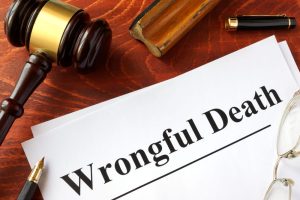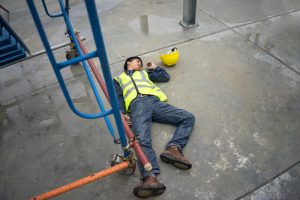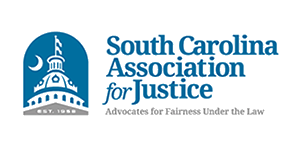Georgetown Wrongful Death Lawyer for Fall from Heights
Pursuing legal action for your relative’s death might be the last thing on your mind while coping with what happened. However, depending on the circumstances, you can seek workers’ compensation death benefits or a monetary award during a third-party claim.
If your loved one’s death resulted from a fall from heights at work, do not hesitate to contact Evans Moore, LLC. Call us at (843) 995-5000 for a free consultation to learn more about what we can do for you.
Understanding the Legal Definition of Wrongful Death
 Wrongful death is a legal cause of action you can pursue when a person’s death is caused by someone else’s neglect, default, or wrongful act. The responsible party’s actions must be something the victim could have filed a personal injury claim for if they survived. For example, had the deceased lived, they might have filed a personal injury lawsuit seeking compensation for pain and suffering. If someone’s negligence causes someone else’s injury, the injured party can pursue legal action against them.
Wrongful death is a legal cause of action you can pursue when a person’s death is caused by someone else’s neglect, default, or wrongful act. The responsible party’s actions must be something the victim could have filed a personal injury claim for if they survived. For example, had the deceased lived, they might have filed a personal injury lawsuit seeking compensation for pain and suffering. If someone’s negligence causes someone else’s injury, the injured party can pursue legal action against them.
However, they can’t file a personal injury claim if the injured party dies due to the negligent party’s actions. Instead, a surviving family member can step in and bring a wrongful death claim against the negligent party.
Similar to personal injury cases, the basis for a wrongful death claim can include:
- Medical malpractice
- Negligence-related incidents like car crashes
- Intentional actions such as physical assault
The Dangers of Working at Heights
Some jobs require employees to climb ladders or stand on scaffolding to complete work-related tasks. Construction is a common occupation where workers must work high off the ground to renovate a home, repair a building, or construct an overpass.
Falling from hundreds or thousands of feet off the ground often leads to life-threatening injuries. For many workers, the consequences are fatal. According to the National Safety Council, falling from heights is the second-leading cause of unintentional workplace fatalities.
Although not all falls are deadly, many lead to debilitating or life-threatening injuries. An employee can land on a sharp object, hard surface, or the wrong part of their body and sustain severe injuries, such as:
- Internal bleeding
- Paralysis
- Loss of limb
- Traumatic brain injury
- Multiple broken bones
- Spinal cord injuries
- Permanent impairment or disability
Falling from heights can occur despite the safety precautions workers take. The most common causes include:
- Using poorly-maintained or defective equipment
- Inadequate or missing guardrails and handrails
- Unsecured tools and walkway obstructions on scaffolding
- Improperly positioned ladder
- Lack of safety gear
- Defective working platforms
- A coworker’s carelessness
- Unsafe working conditions
Death Benefits for Surviving Family After a Fall from Heights
If your loved one dies in a workplace accident after falling from heights, you can file a claim for death benefits through their workers’ compensation insurer. Eligible family members include:
- Spouse
- Minor child
If you are an eligible family member and your family member’s death occurs during the fall, within two years of the accident, or within six years of the fall, and while their total disability benefits continue, their employer must pay death benefits. Benefit payments are sixty-six and two-thirds percent of the decedent’s average weekly wages. However, payments cannot drop below $75 a week or exceed the maximum payable amount.
If a dependent child is 19 when the worker dies, they can collect death benefits for five hundred weeks until they turn 23 if they are a full-time student at an accredited educational institution.
Dependent children with a physical or mental condition preventing self-supporting are also eligible for death benefits up to the five-hundred-week limit regardless of their wage.
Death benefits also include up to $12,500 for burial expenses.
Pursuing a Third-Party Claim for Wrongful Death
 If someone’s negligence caused your family member’s deadly fall from heights, you could file a third-party lawsuit against that person or company. For example, you can sue a manufacturer for supplying faulty scaffolding or a contractor for creating a tripping hazard.
If someone’s negligence caused your family member’s deadly fall from heights, you could file a third-party lawsuit against that person or company. For example, you can sue a manufacturer for supplying faulty scaffolding or a contractor for creating a tripping hazard.
The executor or administrator of your loved one’s estate is the only person allowed to pursue a wrongful death case. There should be a named executor if there is a will. If there isn’t a will or the designated executor can’t or won’t fulfill their duties, the court can appoint an administrator to take on the responsibility.
Compensation Available in a Wrongful Death Lawsuit
Although an executor or administrator files the wrongful death suit, surviving family members are entitled to the compensation recovered. Surviving family include:
- Spouse and children
- Parents, if there isn’t a spouse or child
- Heirs if no parent, spouse, or children survive the decedent
The money received from a wrongful death lawsuit might compensate surviving relatives for:
- Lost financial support and benefits
- Pain and suffering the surviving family endured after the death
- Funeral and burial expenses
- Loss of the decedent’s care, protection, and companionship
- Medical bills related to the fatal injury
- Loss of the decedent’s knowledge, experience, and judgment
Deadline to File a Wrongful Death Lawsuit in South Carolina
You must adhere to a strict timeframe to sue someone for your loved one’s death. The timeframe is memorialized in a law called a statute of limitations. The statute of limitations in South Carolina allows a three-year timeframe to file suit. That means you have three years from when your loved one dies to initiate your lawsuit against the negligent party.
Seek Justice with Evans Moore, LLC
You shouldn’t pursue your case alone. You’re grieving the loss of your loved one and can’t handle the responsibility of a wrongful death case. Let our Georgetown personal injury attorneys at Evans Moore, LLC help. We can take over the entire process so you can focus on coping. We know no amount of money can change what happened, but it might offer some financial relief while paying final medical bills and making funeral arrangements.
If your loved one died after falling from heights at work, call Evans Moore, LLC at (843) 995-5000 for a free consultation now. We will investigate and determine whether you deserve death benefits or compensation from a third-party claim.
Related Posts:
What to Know About Death Certificates for Wrongful Death Claims









